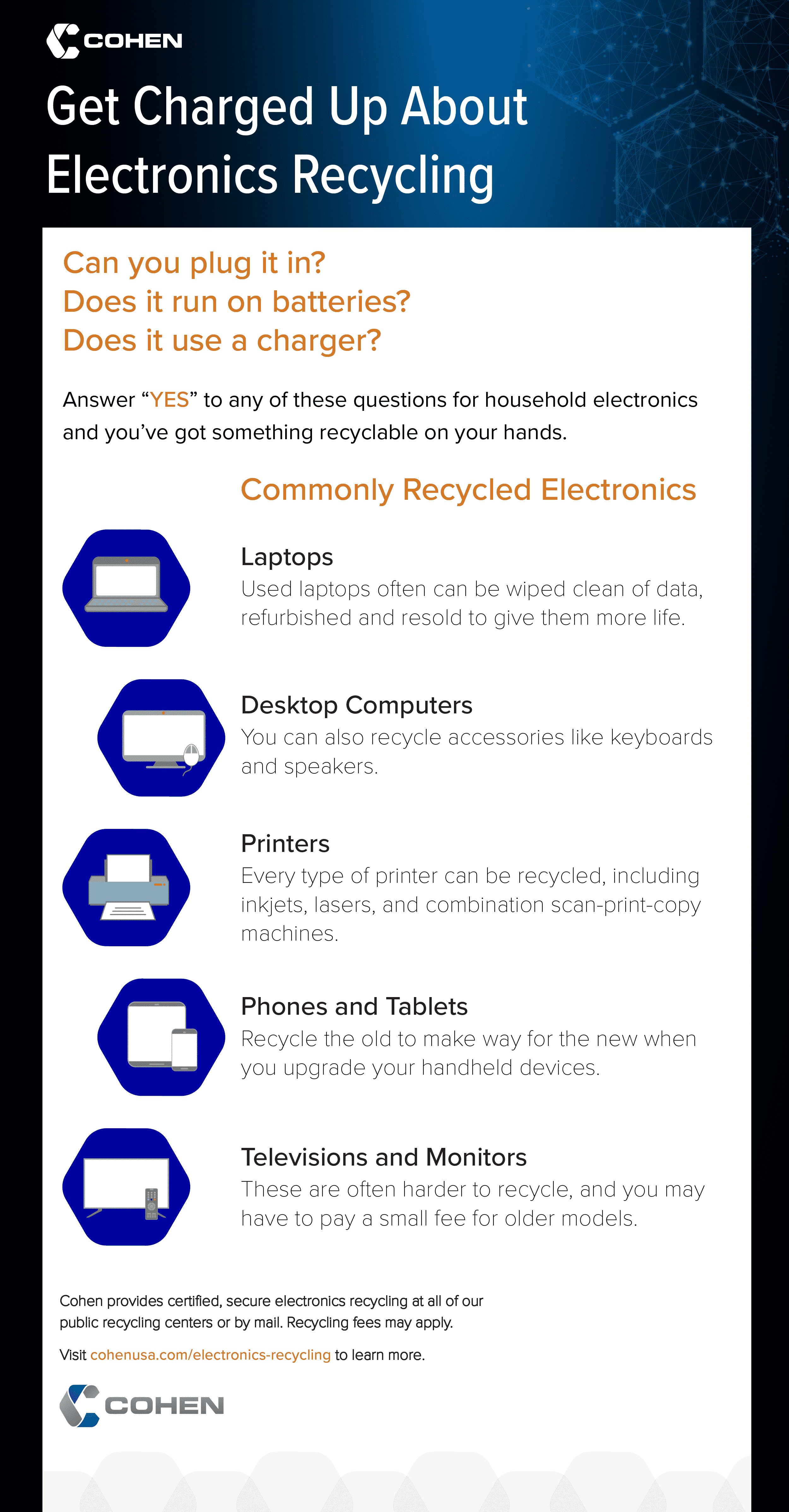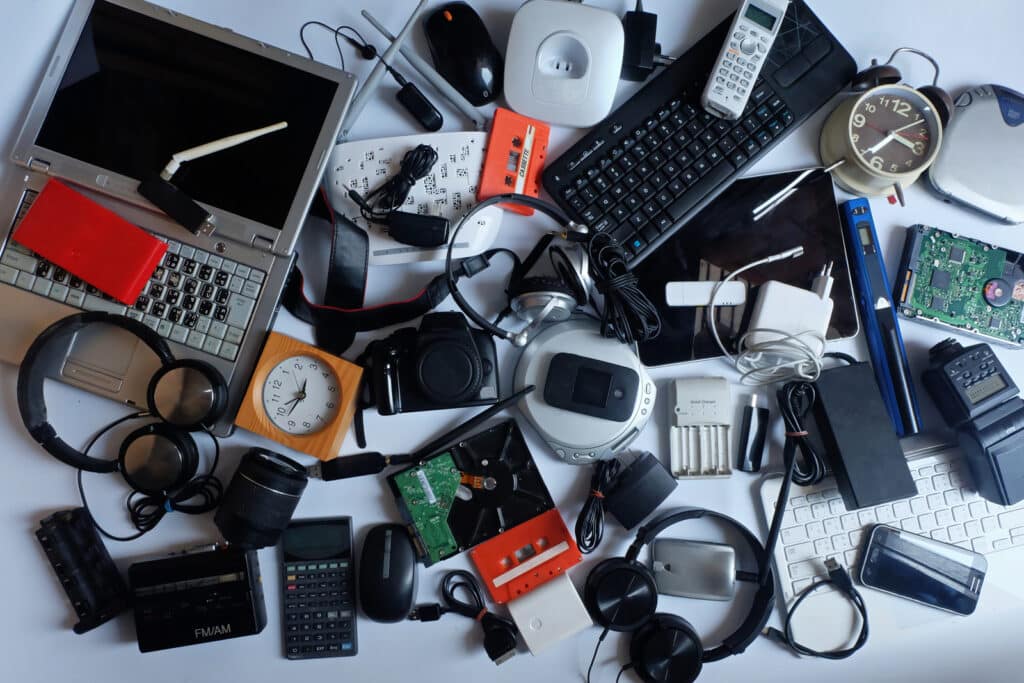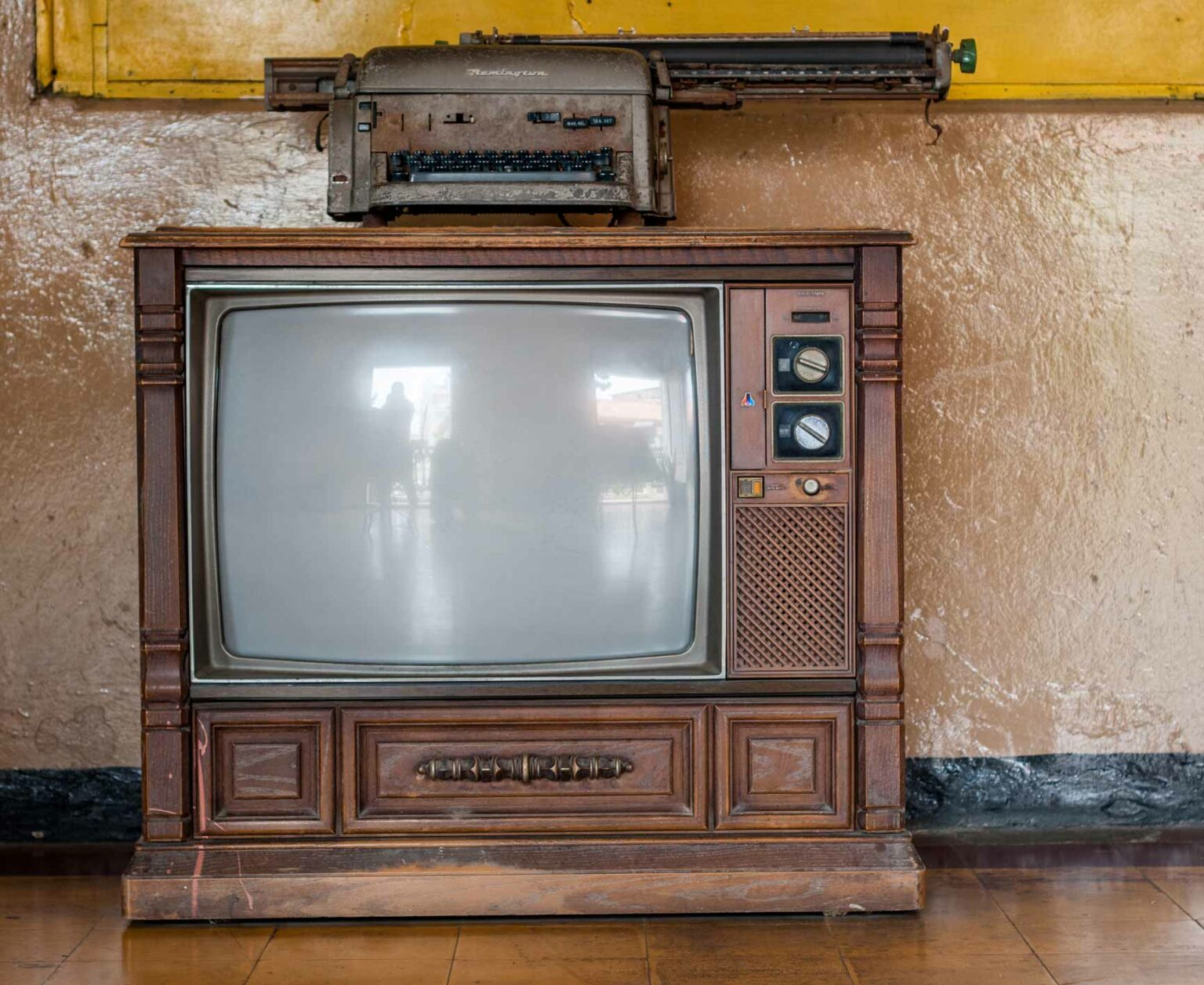Can you plug it in? Does it run on batteries? Does it use a charger?
Answer “yes” to any of these questions for household electronics and you’ve got something recyclable on your hands. It’s important to recycle these appliances, devices and tools because they might have value to you or someone else, throwing them away might be illegal, and some of them can be dangerous.
WHY RECYCLE HOME ELECTRONICS?
There are lots of great reasons to recycle your home electronics, not the least of which is it might be illegal in your city or county to dispose of e-waste along with your typical household trash. That’s because household electronics often contain heavy metals and other toxic materials that are fine when they’re in use, but can harm humans or the environment if they aren’t handled properly or begin deteriorating in a landfill.
In addition, many components and materials can be recycled or reused, which reduces the amount of natural resources that need to be consumed to create new things. For example, according to Electrical Safety First, “…there’s enough steel in an iron to produce 13 steel cans.”
Finally, when you’re talking about computers, cellphones, laptops or tablets, there are data security concerns, as well.
Here are more reasons to recycle your home electronics from Recycle Nation, and information about how they are recycled from Recycle Now.
WHAT CAN BE RECYCLED?
Now that we’ve covered the “why” and “how” of recycling home electronics, let’s get to the “what.”
LAPTOPS
Every single piece of your used laptop is recyclable or reusable. Used laptops often can be refurbished and resold to give them more life, but when that’s not possible, many component materials can be reused. When you recycle your laptop, remember to back up and delete the data from the hard drive first, and make sure your recycler practices data destruction.
DESKTOP COMPUTERS
Like laptops, desktop computers contain all kinds of recyclable and reusable materials. Their monetary value will depend on their size, weight and types of components. You also can recycle your keyboards, mice and monitors.
PRINTERS
Printers are among the most recycled household electronic devices. Every kind of printer can be recycled, from inkjets to lasers to combination printer/copier/scanners, because they contain cables, circuit boards, industrial plastic, metal hardware and network components.
CELLPHONES, SMARTPHONES & TABLETS
Nearly 80 percent of the material in your smartphone is recyclable, and much of it can be reused. Cellphones of any age, smartphones and tablets all contain glass, metal and plastic. In addition, components like batteries, LCD screens, plastic cases and SIM cards often can be used in manufacturing new phones.
TELEVISIONS & MONITORS
Every television can be recycled regardless of how old it is, what type or size it is or who manufactured it. TVs and monitors contain aluminum, copper, glass, lead, plastic and steel, all of which is recyclable. There’s also the potential that some components, like circuit boards, remotes and screens, can be reused.
Regardless of where you take your television and monitor, you’ll be charged a fee. In fact, we often tell people if a recycler is willing to take them at no charge, it’s a warning sign that the facility is not likely to dispose of it responsibly.
Even with the fee, here’s why we believe recycling your TV or monitor is worth it.
HOME ENTERTAINMENT EQUIPMENT
Home video and audio equipment contains many of the same types of materials as computers, smartphones and TVs. According to Lifewire, there are several ways to get rid of your equipment before recycling, like using it in a second room, giving it to friends or donating it to nonprofit organizations. If those options aren’t viable, make sure you take your used equipment to a certified recycler like Cohen.
OTHER HANDHELD DEVICES
Handheld electronic devices like MP3 players, global positioning system devices, digital cameras, DVD players and console gaming systems all can be recycled. That includes wearable technology like smart watches, too.
SMALL HOME APPLIANCES
Things we use every day like blenders, microwaves and toasters usually contain a lot of metal, so they should be recycled, anyway. And, like other electronics, they often contain materials that can be harmful if they’re not disposed of responsibly. One exception is vacuums, which do not contain much recyclable metal, if any. However, you can still disassemble your vacuum and recycle components like the power cord.
A NOTE ON BATTERIES
Many of these items use primary or rechargeable batteries that you need to remove and recycle separately. Rechargeable batteries, in particular, contain harmful substances that can leech into soil and groundwater around landfills.
A NOTE ON DATA SECURITY
Before you recycle cellphones/smartphones, computers, tablets and even gaming consoles, make sure you back up and delete information stored on their hard drives. It’s also a good idea to take them to a certified electronics recycler like Cohen that guarantees data destruction and proper handling of materials.
WILL I MAKE MONEY?
Unfortunately, although you might be able to recoup some of the value of used computers, in most cases you’re probably not going to make money recycling household electronics. The cost of handling and disposing of them is usually higher than the recycled value of their components and materials. In some cases you’ll be charged a fee for items, like TVs and monitors. We recommend that when you’re preparing to bring in household electronics, bring in some scrap, as well, so you can offset those fees somewhat.
Start Recycling Household Electronics
The household electronics in this post are just a start. There are dozens of appliances, devices and tools that need to be recycled because it’s the responsible thing to do.
Make sure you take them to a certified recycler like Cohen, which is dual certified by R2 and RIOS in responsible electronics recycling. That means we handle materials in environmentally responsible ways while also ensuring total data security and destruction. It also means that, if you ever have a question about whether something is recyclable, you can take it to a Cohen Recycling Center that accepts electronics to make sure.
Find your nearest Cohen Recycling Center, hours and phone numbers here. Also, keep an eye out for local e-waste recycling events that happen periodically throughout the year; we announce them on our Facebook page





